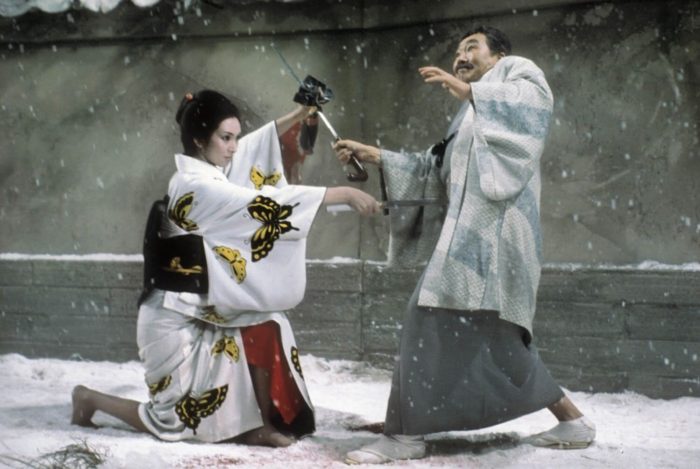Published in the Nikkei Asian Review 7/8/2016
Yuriko Koike – a former television presenter turned politician — has become the first female governor of Tokyo. She now oversees a political unit that is larger than many European states and has the responsibility of preparing the city for the 2020 Olympics.
Ironically she thus become the most visible representative of Prime Minister Abe’s “womenomics” policy – which aims to raise the profile of women in the workforce – despite the fact that his ruling Liberal Democratic Party refused to support her candidacy.
Koike‘s career is a testimony to the value of determination and durability. It was a bold move to leave the comforts of small screen celebrity for the insular, male-dominated world of Japanese politics; an even bolder one to join Morihiro Hosokawa’s Japan New Party, which rose and fell like a firework in the mid-1990s.
Hosokawa was prime minister for just eight months. After retiring from politics in 1998, he has devoted himself to making ceramics at his own kilns in a seaside town a few hours by train from Tokyo. Although he comes from a famous political family, he never seemed comfortable in the hurly-burly of politics. Coincidentally his one disastrous return to the limelight was his failed campaign for governor of Tokyo in 2014.
In contrast to her dilettante former boss, Koike has stuck to her chosen path, adjusting her allegiances as political groupings split and merged and split again like so many amoeba. In 2002 she joined the LDP and became one of Prime Minister Koizumi’s “assassins” who stood for election against opponents within his own party.
In 2007 she was appointed Minister of Defense after the incumbent became embroiled in a financial scandal, and immediately demonstrated her taste for confrontation and bucking the system. Against all precedent and protocol she refused to approve the promotion of a high-ranking bureaucrat, effectively ending his career.
The pattern repeated itself this year. When the sitting governor of Tokyo was forced out in a financial scandal, Koike saw the opportunity and, in her own words, “leapt off the cliff.” With next to no organizational or factional support, she ran against the officially endorsed candidate of Abe’s ruling Liberal Democratic Party, of which she had been a member until recently, and won a crushing victory.
Opportunism? Single-minded determination? In politics, throughout the world, the ends justify the means and the most important end is winning power. Without that you can accomplish nothing. Whatever you think of Koike’s ideas and plans (and she has as many detractors too), she has shown that she is a risk-taker with an excellent sense of timing and a thick skin impervious to sexist insults.
These are attributes she shares with many other female politicians in leadership roles today. For 2016 looks like being the year of the woman leader. In January Tsai Ing-wen won the presidency of Taiwan. In post-Brexit Britain Theresa May has taken over from David Cameron as prime minister. According to the polls, Hillary Clinton is on track to become first female president of the United States. Over in Germany after three terms in office Angela Merkel still appears to have no serious rival.
THE STRONG AND SILENT FEMALE
In Asia there have been women leaders before, but nearly all– from Benazir Bhutto of Pakistan to Park Geun-hye of South Korea, from Indira Gandhi of India to Yingluck Shinawatra of Thailand – have been heirs to political dynasties. With the exception of Hillary Clinton, this year’s cohort owe nothing to family connections. In terms of both style and substance they are redefining gender stereotypes.
The sudden emergence of Theresa May in the U.K. has been a classic example. Hardened political observers were shocked at her brutal purge of Cameron supporters, with former Chancellor George Osborne sacked from the cabinet in a two-minute meeting. A few weeks on, his signature policies of fiscal austerity and encouragement of Chinese investment in crucial national infrastructure are already being reversed.
Meanwhile despite explicit threats from Beijing, President Tsai still refuses to endorse the “1992 consensus,” a slippery diplomatic formula that implicitly rules out Taiwanese independence.
In Hollywood movies, the strong and silent type was always male, but in the US presidential campaign it is Donald Trump who talks too much (mainly on Twitter), and is inordinately concerned with his hair. During the Brexit referendum, it was Cameron who appeared to be suffering from mood swings.
Former British Prime Minister Margaret Thatcher – once described by U.S. President Ronald Reagan as “the only European leader with balls” – was in no doubt as to which gender was more action-oriented. “If you want something said, ask a man,” she declared. “If you want something done, ask a woman.”
In a darkly sarcastic poem, Rudyard Kipling claimed that ”the female of the species is more deadly than the male.” As far as the political species goes, women certainly seem more hardy – less prone to sex and money scandals, verbal gaffes and factional intrigue. But the notion that women might wield power in a more sensitive and consensual way has little substance.
From Catherine the Great of Russia to China’s Empress Dowager Cixi, women have displayed ample aggression and ruthlessness. In today’s Europe two important far right political movements, France’s Front National and Germany’s Alternative für Deutschland, have women leaders. Women are capable of anything that men are – for better and for worse.
Abe has had limited success with his promotion of women politicians so far. Now he will have to work on the prestige project of the 2020 Olympics and other issues crucial to his political legacy with a woman his party refused to endorse. The match-up could be more interesting than some of the Olympic events.

